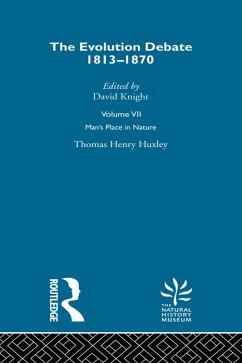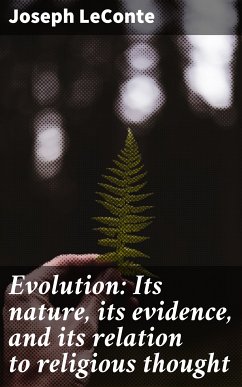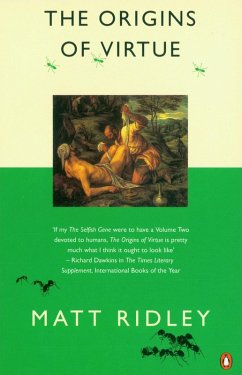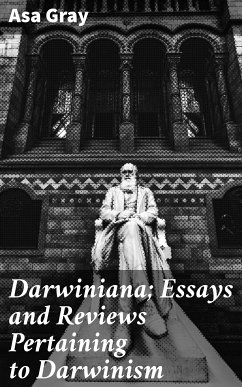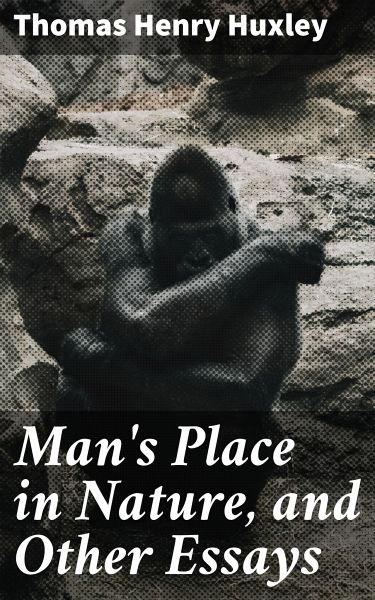
Man's Place in Nature, and Other Essays (eBook, ePUB)
Exploring Humanity's Evolutionary Journey through Scientific Essays

PAYBACK Punkte
0 °P sammeln!
In "Man's Place in Nature, and Other Essays," Thomas Henry Huxley delves into the intricate relationship between humans and the natural world, positioning Homo sapiens within the broader tapestry of evolutionary biology. Through a series of insightful essays, Huxley employs a persuasive yet accessible literary style, bridging the gap between scientific inquiry and public understanding. He meticulously examines fossil records, anatomical comparisons, and the principles of natural selection, reflecting the Victorian era's burgeoning interest in science and its implications for humanity'Äôs sel...
In "Man's Place in Nature, and Other Essays," Thomas Henry Huxley delves into the intricate relationship between humans and the natural world, positioning Homo sapiens within the broader tapestry of evolutionary biology. Through a series of insightful essays, Huxley employs a persuasive yet accessible literary style, bridging the gap between scientific inquiry and public understanding. He meticulously examines fossil records, anatomical comparisons, and the principles of natural selection, reflecting the Victorian era's burgeoning interest in science and its implications for humanity'Äôs self-perception and moral responsibility. Huxley, often dubbed the 'Darwin's Bulldog' for his unwavering support of Charles Darwin'Äôs theories, was profoundly influenced by the scientific fervor of his time. His background in both the natural sciences and the quest for social reform led him to investigate humanity's origins, challenging prevailing anthropocentric views with rigorous evidence. His experiences as a biologist and educator fueled his impassioned advocacy for the scientific method as a means of understanding our existence and ethical obligations. This compelling collection is essential reading for anyone interested in anthropology, biology, or the philosophical implications of evolution. Huxley's blend of eloquence and empirical analysis makes this work a timeless exploration of humanity's place in the natural order, inviting readers to reconsider their views on evolution and our responsibility toward the world and each other.
Dieser Download kann aus rechtlichen Gründen nur mit Rechnungsadresse in A, B, BG, CY, CZ, D, DK, EW, E, FIN, F, GR, H, IRL, I, LT, L, LR, M, NL, PL, P, R, S, SLO, SK ausgeliefert werden.




